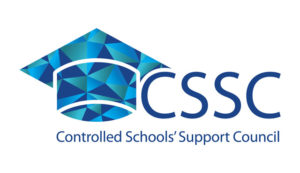Transformative investment a priority

The education budget currently stands at circa £1.9 billion, yet there is no denying that Northern Ireland’s education system is under severe financial strain.
The budget has reduced in real terms, with the outcome being that increasing numbers of schools are likely to find themselves in deficit despite their best efforts to stay within their allocation.
“Controlled schools are under increasing pressure to continue to provide the best possible education outcomes for children and young people,” says Barry Mulholland, Chief Executive of the Controlled Schools’ Support Council (CSSC). “Within the context of a continually reducing resource, schools’ leaders have reported to us that the system is now at breaking point, with some saying they are at ‘rock bottom’.
“CSSC fully appreciates that there is a finite pot of money, but if there is insufficient investment in the education system, then Northern Ireland’s future is bleak. The education system as a whole should receive the investment it needs to provide the best quality education to enable children and young people to fulfil their potential and prepare them for life and work.”
CSSC, the advocacy body for the largest education sector in Northern Ireland, asked controlled school principals what steps they had taken to keep within their allocated budget.
“Principals told us that budgetary pressures have impacted on core day-to-day teaching and learning. They are having to make efficiencies in terms of staff, leading to an increase in class sizes and reductions in curriculum offer,” says Mulholland. “It’s also concerning that shared education programmes, buying books, counselling services, IT provision, languages and music classes have already been cut in some schools, with curricular offer starting to be affected.”
Special educational needs (SEN) provision and the classroom assistants who provide support were mentioned by principals as one potential area to be cut back as a result of budget restrictions. “This would be particularly damaging for children with special needs and challenges to their learning,” adds Mulholland.
From a school perspective, financial pressures are coming from rising costs, such as basic increases in salaries and inflation, and cuts to funding streams and initiatives. Changes in demographics and the mechanics of the common funding formula led to a reduction of £56 per primary pupil and £15 per post-primary pupils in 2017/18 compared to 2016/17 via the age weighted pupil unit (AWPU). Should pupil numbers continue to rise and the same formula be used, the amount of money schools receive will decrease further.
“From a wider system perspective, there has been prolonged underinvestment in school maintenance,” says Mulholland. “This has compounded pressures on the education estate budget leading to the need for significant capital investment. As well as sufficient funding to run schools, there needs to be a realistic investment in bricks and mortar, greater investment in area planning and appropriate funding of the education workforce.
“It is clear to CSSC that additional investment is needed in the current education system. Transformation has been recognised as a way to make more efficient use of existing resources. In this context, a comprehensive transformation plan needs to be mapped out, with input from key stakeholders, supported by the required investment in the short, medium and long term to enable transformation to take place.”
Controlled Schools’ Support Council
Second Floor, Main Building
Stranmillis University College
Stranmillis Road
Belfast, BT9 5DY
T: 028 9531 3030
E: info@csscni.org.uk
W: www.csscni.org.uk
Twitter: @CSSC_NI






